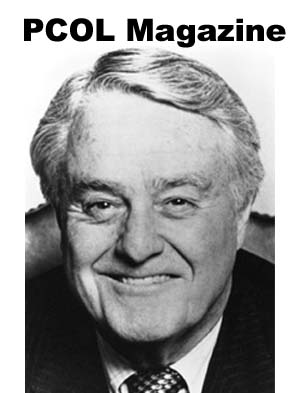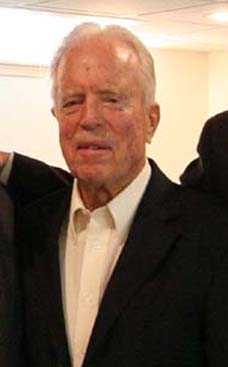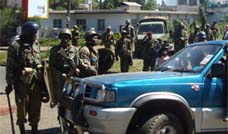
As the film footage makes abundantly clear, there was plenty of volunteer work to be done among the world's poor. It is tempting to conclude from some of the material on view in "American Idealist," and even more so from the archival footage of conditions in the pre-civil rights American South, that political activism was the necessary facilitator of a long overdue transformation. We know from hindsight that the actual results have been mixed, especially when it came to Mr. Shriver's subsequent role leading Lyndon Johnson's "war on poverty." Thoughtful conservatives today might argue that private-sector solutions and tax incentives, together with strictly enforced antidiscrimination laws, would have done a better job. But the evidence is scarce that many conservatives, thoughtful or otherwise, were making such arguments when major societal change was necessary. Still, it's laughable or worse to blame the failures of the "war on poverty" on a dearth of money, as this film does. The trillions that have been spent on such programs in the decades since are a powerful argument that what is lacking is imagination and a basic understanding of what motivates people to both avoid social pathologies and improve their lives. It's not at all clear that the surviving Kennedys will welcome this documentary. None appear on camera, and the film portrays President Kennedy as a cautious and tentative politician and his brother, Robert Kennedy, as a bullying schemer. When Martin Luther King Jr. was jailed on a trumped-up parole issue related to a traffic violation during the 1960 presidential campaign, it was Mr. Shriver who urged his brother-in-law to at least make a phone call to Mrs. King. When the call was made public, campaign manager Bobby was reportedly livid and almost literally jumped down Mr. Shriver's throat. Later on, the film claims the Kennedy family blocked two efforts, first by Johnson and later by Hubert Humphrey, to offer Mr. Shriver the vice-presidential slot on the Democratic ticket.
Christopher Wilcox writes: Although it is an entirely uncritical paean to a life-long supporter of an ever-expanding federal government, "American Idealist" provides a timely and even an inspiring reminder that Americans, particularly young ones, want to believe in something more important than their next paycheck
The Great American Volunteer
Television | Review of: American Idealist: The Story of Sargent Shriver
By CHRISTOPHER WILLCOX
January 21, 2008
A D V E R T I S E M E N T
A D V E R T I S E M E N T
Near the beginning of PBS's engrossing new documentary "American Idealist," on the life and career of Sargent Shriver, Bill Moyers appears onscreen to pronounce the founding director of the Peace Corps "the best all-around politician" he ever met — not an auspicious introduction unless you happen to be a fan of the mean-spirited self-righteousness that is the Moyers specialty. But hang on. Although it is an entirely uncritical paean to a life-long supporter of an ever-expanding federal government, "American Idealist" provides a timely and even an inspiring reminder that Americans, particularly young ones, want to believe in something more important than their next paycheck.
Voluntarism, which is at the heart of the story of the Peace Corps, has been a particularly salient feature of American life, as numerous studies have shown. Watching the fervent young faces of the college students responding to Mr. Shriver's first appeals for help is a pleasant confirmation of that fact.
For television purposes, it helps that Mr. Shriver is an undeniably attractive figure, whose telegenic geniality almost rivaled President Reagan's, even if his plans and programs often fell short. PBS's documentary, which airs tonight at 10 p.m., also provides some intriguing behind-the-scenes tidbits on Mr. Shriver's dealings with President Lyndon Johnson and especially the Kennedy family. And it raises an interesting point about the power of ideas to shape politics. Current presidential candidates from both parties might benefit from this reminder.
Unlike some of his more prominent in-laws — Mr. Shriver married President Kennedy's sister, Eunice, in 1953 — Mr. Shriver, now 92, is by all accounts a serious Roman Catholic. His mother, Hilda Shriver, not only marched for women's suffrage, but also helped found Commonweal magazine, for decades a must-read among liberal Catholic intellectuals. His godfather was the archbishop of Baltimore, and his entire career was animated by the social gospel associated with mid-century American Catholic activists. Even Mr. Shriver's constant emphasis on the importance of grass-roots action draws some of its inspiration from the arcane Catholic notion of "subsidiarity," which holds that responsibility should reside at even the lowest levels.
As the film footage makes abundantly clear, there was plenty of volunteer work to be done among the world's poor. It is tempting to conclude from some of the material on view in "American Idealist," and even more so from the archival footage of conditions in the pre-civil rights American South, that political activism was the necessary facilitator of a long overdue transformation. We know from hindsight that the actual results have been mixed, especially when it came to Mr. Shriver's subsequent role leading Lyndon Johnson's "war on poverty."
Thoughtful conservatives today might argue that private-sector solutions and tax incentives, together with strictly enforced antidiscrimination laws, would have done a better job. But the evidence is scarce that many conservatives, thoughtful or otherwise, were making such arguments when major societal change was necessary. Still, it's laughable or worse to blame the failures of the "war on poverty" on a dearth of money, as this film does. The trillions that have been spent on such programs in the decades since are a powerful argument that what is lacking is imagination and a basic understanding of what motivates people to both avoid social pathologies and improve their lives.
It's not at all clear that the surviving Kennedys will welcome this documentary. None appear on camera, and the film portrays President Kennedy as a cautious and tentative politician and his brother, Robert Kennedy, as a bullying schemer. When Martin Luther King Jr. was jailed on a trumped-up parole issue related to a traffic violation during the 1960 presidential campaign, it was Mr. Shriver who urged his brother-in-law to at least make a phone call to Mrs. King. When the call was made public, campaign manager Bobby was reportedly livid and almost literally jumped down Mr. Shriver's throat. Later on, the film claims the Kennedy family blocked two efforts, first by Johnson and later by Hubert Humphrey, to offer Mr. Shriver the vice-presidential slot on the Democratic ticket.
When Mr. Shriver finally got his chance for elective office in 1972, he had the misfortune of running with George McGovern. The campaign was a catastrophe and, at the very least, calls into question Mr. Moyers's assertion regarding Mr. Shriver's political talents.
According to the film, Mr. Shriver somewhat wistfully retired to private life following the defeat in 1972, though he worked to foster communication between America and the Soviet Union, and among American Jews, Christians, and Muslims, in various lecture tours and institutes through the 1970s and '80s. Mr. Shriver's regret in leaving public life is ironic, however, because it is only in private life that he was offered the job he may have been born to do: the presidency of the organization that grew from Eunice's wonderful initiative, the Special Olympics for young people with disabilities. Mr. Shriver, who was diagnosed with Alzheimer's disease in 2003, may have felt that the public stage was larger and more prestigious, but the evidence suggests that his mother, whom he reportedly adored, would have been proudest of his work with those children.










